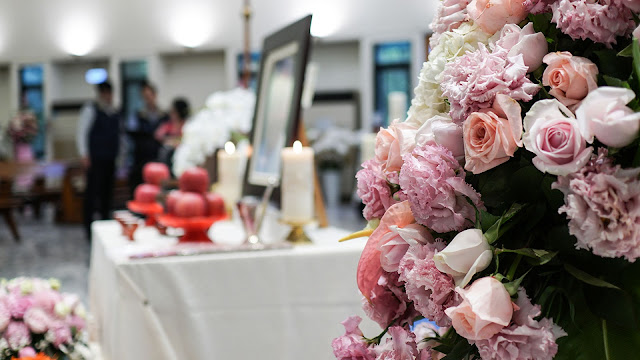How should you handle the death of a loved one?
You may experience intense sorrow and
sadness after a loved one passes away. Without the deceased, you could
experience sadness, rage, or even a sense of loss. The process of adjusting to
what has transpired might be lengthy. Be nice to yourself and look for solace
and assistance from people you can rely on. Keeping all these things in mind in
this post, our funeral home has
mentioned some points that might help you cope when someone you love has died.
Let's read it out:
Accept your
emotions
If you feel yourself starting to
weep, don't restrain yourself. Instead of thinking you "should" feel
differently, accept the sensations you are experiencing. Others might
occasionally demand that you "move on" before you're ready. However,
take the time you need. Be aware that recovery requires time, but it is doable.
Healing doesn't include forgetting about the deceased. But it doesn't mean you
don't still miss them.
Take on
tasks
The bereaved are instantly
overburdened with new and growing obligations after a tragic loss. If you are a
family member of theirs, your assistance in lessening their load will be much
appreciated. We must advise you to start by saying something like, "I'd
love to help. Do you have any suggestions that would be useful? If they don't
offer any recommendations, you can be more precise: ask if you can help with
dinner preparation, yard mowing, or grocery shopping. You might also offer to
take the grieving person on a walk or out to supper as a pleasant diversion.
Spend time
talking with others
The benefits of talking to others can
be enormous while you are coping with a loved one's unexpected loss. Being with
other people will not only be consoling, but it might also make your loss
easier to handle. You may do two things when you converse with people.
The first is that you may express
your emotions to those who are going through similar suffering. Even to help
you cope with the unexpected loss, talking about this might be beneficial.
The opportunity to reflect on
recollections of the departed is the second benefit of talking to others. It
might help you feel better to talk about the enjoyable times you had together.
It's also a fantastic method to provide and receive the emotional support you
require during this trying time.
Reach out
for support
It may be incredibly isolating to
grieve the loss of a loved one. You could believe that no one can relate to or
comprehend what you are going through. Despite this, it's crucial to have a
strong support system of friends and family. They may still provide you with
the emotional support you require at this time, even though they might not
completely understand what you are going through.
And if you feel like you need further
support in finding out how to mourn, don't be hesitant to seek the assistance
of a counselor. A counselor may support you in processing the loss and in
learning coping mechanisms for the physical and emotional signs of grieving
while you recover.
Conclusion
These are some tips that will help
you out. If you are looking for funeral-related services, you can connect with
us for more details and satisfactory answers.




Comments
Post a Comment